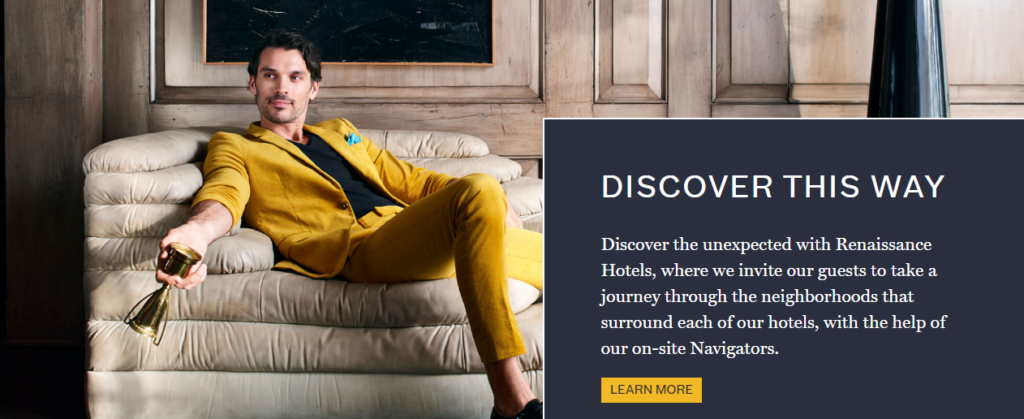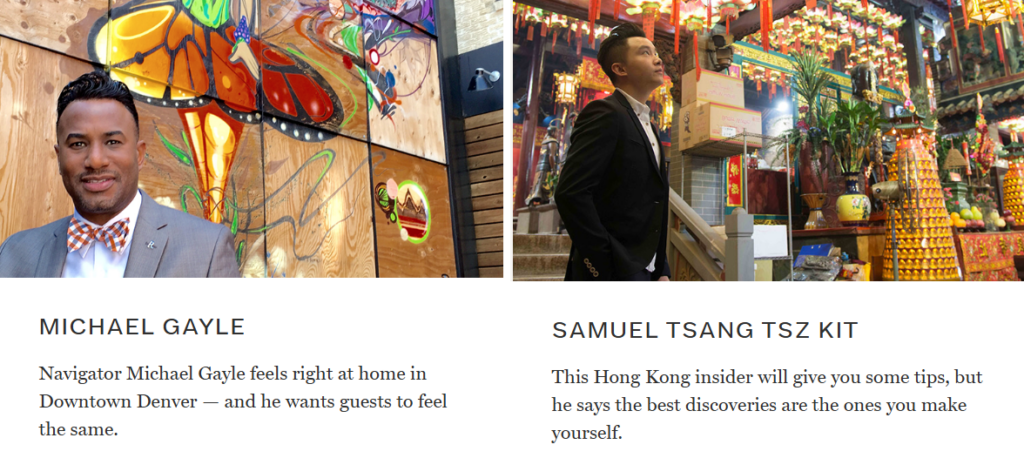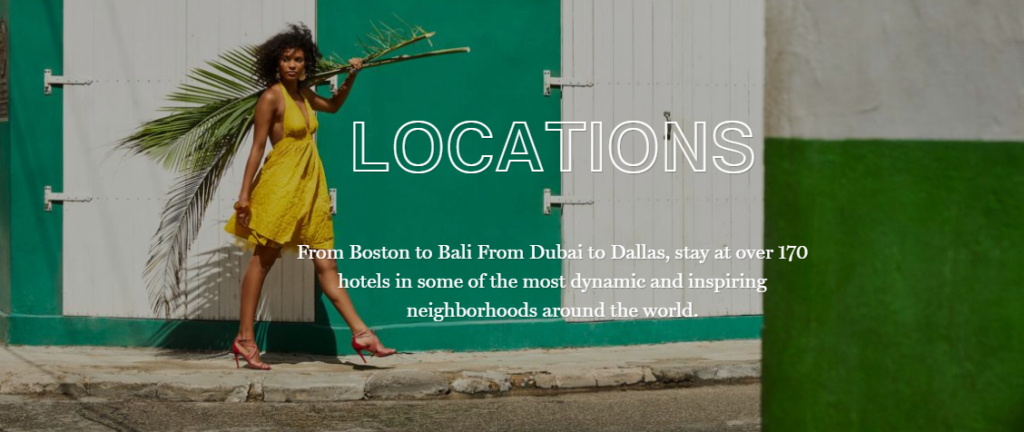Culture Transformation Through Brand Alignment: The Renaissance Hotel Group Case Study
Summary
In 2022, the Renaissance Hotel Group underwent a significant transformation to address the disconnect between their external brand promise of “Authentic Local Experiences” and their internal operational culture. In this case study, let’s examine how the organization successfully aligned their internal culture with their brand values over an 18-month period, resulting in improved guest satisfaction scores, employee engagement, and revenue growth.

Initial Challenges
- Inconsistent guest experiences across properties
- Employee confusion about brand values and expectations
- Disconnect between marketing promises and service delivery
- High staff turnover (32% annually)
- Low employee engagement scores (65%)
- Guest satisfaction scores plateauing at 78%
Brand Core Values
As a launchpad to fix their issues, the Renaissance zeroed in on (4) Four core brand values:
- Cultural Authenticity
- Personalized Discovery
- Local Connection
- Artisanal Excellence
These ideals were not vague, trendy words, instead were clear and actionable, and they gave their team a north star to execute the strategy.
Transformation Strategy
Phase 1: Laying the Groundwork for Transformation (Months 1-3)
Before meaningful change could take place, the Renaissance Hotel Group needed to understand the gap between its brand promise and the actual employee and guest experience. The first step was building a strong foundation by assessing the existing culture, aligning internal values with external messaging, and creating a team to drive change. Here’s how the process unfolded in the first three months:
- Conducted comprehensive cultural audit across 15 properties
- Established cross-functional transformation team
- Developed new employee value proposition aligned with brand values
- Created brand ambassador program

Phase 2: Bringing the Brand to Life
With a solid foundation in place, the next phase focused on embedding brand values into daily operations and employee interactions. By leveraging storytelling, peer recognition, and operational changes, the Renaissance Hotel Group transformed its culture from the inside out. Here’s how they made it happen:
- Leadership Alignment
- Intensive workshop series for all management levels
- Development of leadership behaviors charter
- Implementation of brand-aligned decision-making framework
2. Employee Engagement
- Redesigned onboarding program incorporating brand values
- Launched “Local Expert” certification program
- Introduced storytelling training for guest interactions
- Created peer recognition program aligned with values
3. Operational Integration
- Revised standard operating procedures to reflect brand values
- Implemented a local partnership program
- Redesigned guest touchpoints to enhance authenticity
- Developed local experience measurement metrics
Phase 3: Sustaining the Transformation
We understand that lasting change requires ongoing reinforcement. In this final phase, the Renaissance Hotel Group ensured that brand alignment wasn’t just a one-time initiative but a continuous part of its culture. The hotel implemented regular check-ins, training, and recognition programs, the company kept employees engaged and committed to delivering an authentic brand experience. Here’s how they maintained momentum:
Keeping a Pulse on Culture
- Conducted regular culture pulse surveys
- Hosted monthly brand alignment workshops
Fostering Engagement & Growth
- Established continuous feedback loops.
- Launched a recognition and rewards program
Key Initiatives Driving Cultural Transformation
To truly align the Renaissance Hotel Group’s brand with its guest experience, the company implemented key initiatives that empowered employees, deepened local connections, and enhanced authenticity. These efforts transformed the hotel into more than just a place to stay—it became a gateway to immersive cultural experiences.
The Navigator Program
The Navigator Program redefined the traditional concierge role, transforming hotel staff into Local Navigators—curators of authentic, destination-driven experiences. Instead of simply offering directions or restaurant recommendations, these Navigators became storytellers and cultural ambassadors, deeply trained in local history, traditions, and hidden gems. By forging partnerships with local artists, businesses, and community leaders, they crafted personalized guest experiences that went beyond typical tourism, immersing visitors in the true essence of each destination. Whether arranging private gallery tours, coordinating culinary experiences with local chefs, or guiding guests to off-the-beaten-path cultural sites, the program ensured that every stay felt unique, meaningful, and deeply connected to the surrounding community.

Employee Empowerment
The Employee Empowerment Initiative put decision-making directly into the hands of hotel staff, allowing them to enhance guest experiences in real time. By granting team members the authority to make on-the-spot service decisions, the program fostered a culture of trust, agility, and personalized hospitality. Employees were also given dedicated budgets to create unique local experiences, enabling them to collaborate with artists, vendors, and cultural groups to bring the destination to life; similar to the Ritz-Carlton’s “I am empowered” Service Value #3 .
Flexible scheduling allowed staff to actively participate in local events, deepening their connection to the community while enhancing their ability to provide authentic recommendations to guests. Additionally, cross-training opportunities ensured that employees gained diverse skill sets, fostering career growth and a more dynamic, engaged workforce.

Local Integration
The Local Integration Initiative bridged the gap between the hotel and the surrounding community, transforming the property into a vibrant cultural hub. Through local artist residency programs, the hotel became a platform for creatives to showcase their work, enriching the guest experience with authentic, destination-inspired artistry. Community engagement initiatives fostered meaningful connections, allowing guests and staff to participate in local traditions, volunteer efforts, and cultural exchanges.
By partnering with local suppliers, the hotel infused its offerings with regionally sourced products, from handcrafted décor to farm-to-table dining. To further celebrate the destination’s identity, cultural events were woven into the guest experience—featuring live performances, traditional ceremonies, and seasonal festivities that brought the spirit of the community to life.

Results and Impact
The Renaissance Hotel Group’s brand alignment initiative delivered tangible, quantifiable results, demonstrating the power of cultural transformation in driving both employee and guest satisfaction
Some Quantitative Outcomes:
- Employee engagement increased to 85%
- Staff turnover reduced to 18%
- Guest satisfaction scores improved to 92%
- Revenue per available room increased by 15%
- Local experience booking rate increased by 45%
Qualitative Results
- Stronger sense of purpose among employees
- Enhanced local community relationships
- Improved brand reputation
- More authentic guest experiences
- Stronger employee understanding of brand values
Key Success Factors for the Renaissance
Several key factors contributed to building a strong brand culture at The Renaissance. Firstly, clear alignment between the brand promise and internal operations was crucial. This meant that every aspect of the organization, from employee interactions to product offerings, reflected the brand’s values.
Secondly, consistent leadership commitment and modeling were essential to demonstrating the importance of brand culture. Finally, comprehensive training and development programs, regular measurement and feedback mechanisms, employee empowerment, and the integration of local community partnerships were all vital components of their successful brand culture strategy.
Lessons Learned
Certainly, here’s a summary of the provided information into 3 short paragraphs:
Key Success Factors for Building a Strong Brand Culture:
Several key factors contribute to building a strong brand culture. Firstly, clear alignment between the brand promise and internal operations is crucial. This means that every aspect of the organization, from employee interactions to product offerings, should reflect the brand’s values. Secondly, consistent leadership commitment and modeling are essential to demonstrate the importance of brand culture. Finally, comprehensive training and development programs, regular measurement and feedback mechanisms, employee empowerment, and the integration of local community partnerships are all vital components of a successful brand culture strategy.
Lessons Learned:
Building a strong brand culture is an ongoing process that requires sustained commitment. Employee involvement in the planning and implementation stages is crucial to ensure buy-in and ownership. Regular communication and transparent feedback mechanisms are essential to maintain momentum and address any challenges that may arise.
Additionally, measuring the progress of cultural initiatives and adapting strategies based on the data is key to continuous improvement. Finally, recognizing and adapting to local nuances is essential for authentic brand expression.
Future Considerations
Looking ahead, several key areas warrant further exploration as the Renaissance evolves with their customer needs. By expanding local partnership programs, they plan on enhancing community engagement and strengthening the brand’s social impact. By developing digital tools for experience curation, Renaissance can personalize interactions and deepen customer relationships. Enhanced measurement of cultural impact will help provide valuable insights for ongoing improvement and iterations.
Continuously evolving training programs to address emerging needs and foster new skills will be crucial for long-term success of their brand and culture alignment initiatives. Finally, by striking a balance between global brand consistency and local adaptation the hotel can be known for authentic and impactful brand expression.

Conclusion
The Renaissance Hotel Group’s successful culture transformation demonstrates the power of aligning brand values with internal culture. By focusing on authentic implementation and employee empowerment, the organization achieved significant improvements in both operational metrics and guest experience.
Ready to align your brand with your core values? Let’s do it!
